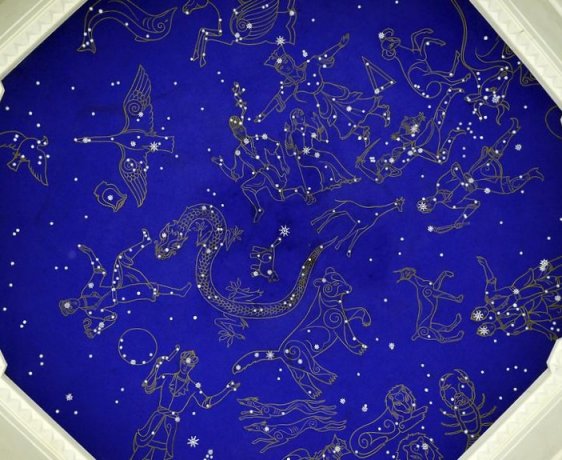

"Religions may vanish, kingdoms decay, but the work of scholars will remain forever."
- Ulugh Beg (Mīrzā Muhammad Tāraghay bin Shāhrukh), Emir of the Timurid Empire

Image: Ceiling of the reconstructed Ulugh Beg Observatory, CC 4.0, © Gerhard Huber, 2008
Source:
https://global-geography.org
From the 8th century until the beginning of the modern era, the cities of Central Asia engaged many of the world's greatest talents and intellects. Astronomers, engineers and doctors undertook the most advanced scientific inquiry of the day. Poets, musicians and translators participated in an intense cultural flourishing. All of this passed from one urban center to another, and back again, along the complex and dynamic trading networks collectively known as the Silk Road.
Through centuries of both peace and political turmoil, Central Asians collected, translated and interpreted the works of both ancient and contemporary scholars whose writings found their way to the crossroads of the world. In preserving, expanding and refining a body of global knowledge, Central Asian scholars ensured that more than just their own intellectual legacies survived. Today we must acknowledge the role these scholars played in the creation of the modern world through their own advances and their contributions to our collective heritage. This site can be used to explore the subjects of their interest as they knew them, and the surroundings that shaped their lives.
Banner Image: Molded tile panel, 13th–14th century; Ilkhanid period. Iran, Nishapur
Ceramic with turquoise and cobalt glaze; Rogers Fund, 1937 (37.40.26,.27)
Source: https://joycegoht01.wordpress.com
